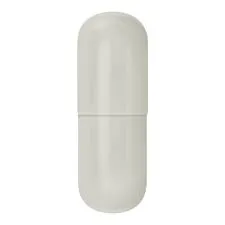
Dec . 23, 2024 18:13 Back to list
hydroxyethylcellulose based
Exploring Hydroxyethylcellulose The Versatile Polymer for Diverse Applications
Hydroxyethylcellulose (HEC) is a non-ionic, water-soluble polymer derived from cellulose, a natural polymer found in the cell walls of plants. HEC possesses a unique blend of properties that makes it an invaluable ingredient in various industries, including pharmaceuticals, cosmetics, food, and construction. This article will delve into the characteristics, applications, and benefits of hydroxyethylcellulose, highlighting its importance in different fields.
Characteristics of Hydroxyethylcellulose
Hydroxyethylcellulose is noted for its high biocompatibility, making it a preferred choice in formulations where safety and efficacy are paramount. As a cellulose derivative, HEC retains the fundamental structural attributes of cellulose while exhibiting superior solubility in cold water. This water-soluble nature enables it to form viscous solutions, allowing HEC to act as a thickening, gelling, or stabilizing agent.
In solution, hydroxyethylcellulose exhibits pseudoplastic behavior, meaning that its viscosity decreases under shear stress. This property is particularly advantageous in applications such as coatings and adhesives, where the material needs to flow easily during application but maintain a thicker consistency once set. Additionally, HEC is stable across a wide range of pH levels, from acidic to alkaline, which enhances its versatility in various environments.
Applications of Hydroxyethylcellulose
1. Pharmaceuticals In the pharmaceutical industry, hydroxyethylcellulose is often used as a binder and drug release agent in tablets and capsules. Its ability to form stable gels makes it effective in controlled drug delivery systems. HEC is also utilized in ophthalmic solutions where it improves the viscosity and comfort of eye drops, extending their residence time on the eye surface.
2. Cosmetics and Personal Care Hydroxyethylcellulose is a popular choice in cosmetic formulations due to its thickening and film-forming properties. It enhances the texture and consistency of products like shampoos, conditioners, lotions, and creams. Moreover, HEC is non-irritating and can help stabilize emulsions, ensuring that oil and water components remain mixed.
hydroxyethylcellulose based

3. Food Industry In food processing, HEC serves as a thickening agent and stabilizer. It improves the texture and mouthfeel of various products, including sauces, dressings, and dairy products. Moreover, HEC can enhance the shelf life of food items by preventing syneresis (the separation of liquid) in gelled products.
4. Construction Hydroxyethylcellulose is increasingly used in the construction industry as an additive in cement and mortar. It enhances workability, water retention, and adhesion properties, facilitating easier application and improving the durability of building materials.
Benefits of Hydroxyethylcellulose
The benefits of hydroxyethylcellulose are manifold. First and foremost, its non-toxic and biodegradable nature ensures that it poses minimal environmental impact, aligning with the growing demand for sustainable products. Additionally, HEC's versatility allows formulators to create innovative products across a spectrum of industries, addressing specific needs while complying with regulatory standards.
Furthermore, HEC is easy to work with; it can be incorporated into formulations with minimal processing, making it a cost-effective choice for manufacturers. Its broad range of applications and favorable performance characteristics contribute to its growing prominence in the market.
Conclusion
Hydroxyethylcellulose is a remarkable polymer that plays a crucial role in numerous sectors. Its unique properties, including water solubility, thickening capabilities, and biocompatibility, make it an essential ingredient in many formulations. As industries continue to seek sustainable and effective solutions, the significance of hydroxyethylcellulose is poised to increase, paving the way for innovative applications that meet the demands of a rapidly changing world.
-
Versatile Hpmc Uses in Different Industries
NewsJun.19,2025
-
Redispersible Powder's Role in Enhancing Durability of Construction Products
NewsJun.19,2025
-
Hydroxyethyl Cellulose Applications Driving Green Industrial Processes
NewsJun.19,2025
-
Exploring Different Redispersible Polymer Powder
NewsJun.19,2025
-
Choosing the Right Mortar Bonding Agent
NewsJun.19,2025
-
Applications and Significance of China Hpmc in Modern Industries
NewsJun.19,2025







